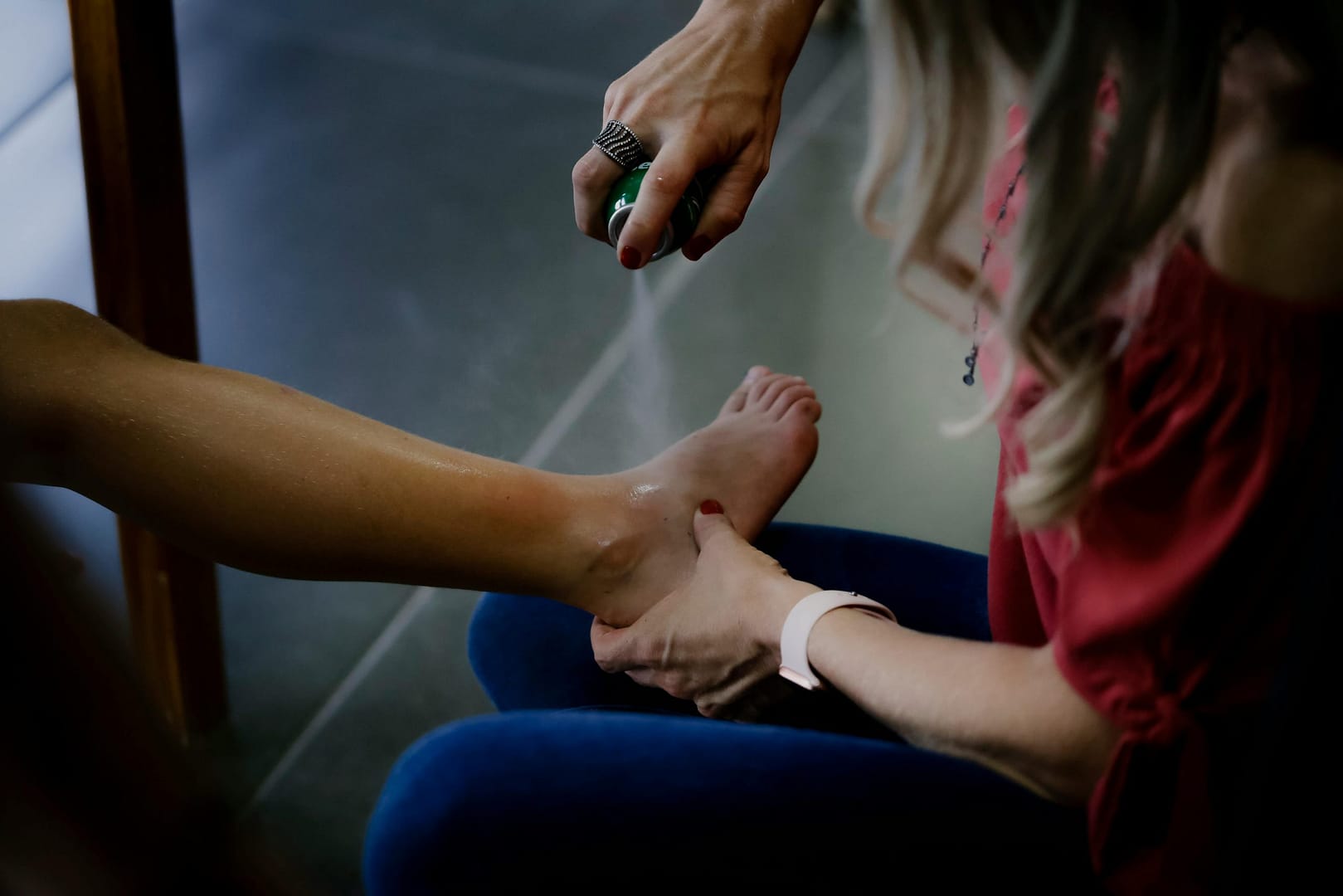Ouch! You’ve rolled your ankle, and now it’s throbbing. Ankle injuries are the pits. Unfortunately, they’re all too common – whether you’re a weekend warrior tackling a fun run, a dedicated dancer, or just someone who took a misstep on an uneven pavement. But don’t worry – while ankle injuries can be frustrating, understanding what’s happened and getting the right treatment is key to a smooth recovery.
Let’s untangle the world of ankle injuries and get you back on track to putting your best foot forward! We will also highlight how you can start a personal injury claim.
What exactly is an ankle injury?
Think of your ankle joint as a complex, awesome hinge. It’s formed by the meeting of three bones held together by strong bands of tissue called ligaments. These ligaments keep your ankle stable, allowing the up, down, and side-to-side motion needed for walking, running, and staying balanced.
Ankle injuries usually happen when those ligaments get overstretched or torn. This often happens from sudden twisting or rolling your foot inwards or outwards.
Types of Ankle Injuries
Not all ankle injuries are created equal. Here’s a breakdown of the most common culprits:
Sprains:
This is the biggie in the world of ankle injuries. Ankle sprains occur when ligaments get stretched too far or even partially tear. They usually happen on the outer side of your ankle.
Strains:
This involves your muscles or tendons (which connect your muscles to bones). Strains are basically overstretching or tearing muscles/tendons. Sometimes they’re hard to tell apart from sprains since the symptoms can be similar.
Fractures:
Broken bones in your ankle can also be the nasty result of a twist or fall. These tend to be more painful and serious than sprains or strains.
Warning Signs! How Do I Know I’ve Injured My Ankle?
Here are some classic red flags to look out for:
- Pain: Duh, right? But the pain can range from a dull ache to a sharp, “make-you-yelp” feeling.
- Swelling: Your ankle might puff up like a balloon soon after the injury.
- Bruising: Say hello to those beautiful shades of black, blue, even purple.
- Tenderness: Touching your ankle might make you want to say some less-than-polite words.
- Difficulty Walking or Putting Weight on It: It might be a wobbly, painful mess, or it could be completely impossible.
- Popping/Snapping Feeling: This can happen if you have a severe sprain or fracture.
I’ve Injured My Ankle – Now What?
The first few days after an ankle injury are key. Follow the R.I.C.E method:
- Rest: Get off that ankle! Let it recover, and avoid activities that make it hurt.
- Ice: Apply ice packs (wrapped in a towel!) for 15-20 minutes a few times a day. This helps reduce swelling and pain.
- Compression: Wrap a bandage around your ankle snugly, but not too tightly, to give some support.
- Elevation: Prop your ankle up on some cushions or pillows, keeping it above heart level if possible.
You can also try over-the-counter pain relief medication like ibuprofen or paracetamol.
Receive a Call About Your Claim
When Should I Seek Professional Help?
If things aren’t improving after a couple of days, or if you experience any of these, it’s time to call in the experts:
- Severe pain or swelling
- Inability to put any weight on your foot
- A noticeable bend or deformity in your ankle
- An open wound
- Signs of infection (fever, redness, warmth)
Your doctor, an urgent care centre, or a physiotherapist can assess your ankle injury, figure out exactly what’s going on, and recommend the right treatment plan. In some cases, you might need an X-ray to check for fractures or a more supportive boot or brace.
Making a Personal Injury Claim for an Ankle Injury with National Claims
If you’ve sustained an ankle injury due to someone else’s negligence, you may be entitled to compensation. At National Claims, we understand that ankle injuries can have a lasting impact on your life. Whether your injury resulted from a slip and fall on unsafe premises, a sports accident, a car crash, or even negligent medical treatment that made your existing injury worse, we’re here to help.
Free Consultation
We begin with a free, confidential consultation focused on your experience. We’ll listen carefully to your story, offering empathy and initial guidance on whether you have grounds for a claim. Our approach is sensitive but direct, understanding that navigating this landscape can be emotionally challenging.
*No Win, No Fee
Financial concerns shouldn’t be an obstacle to seeking justice. At National Claims, we operate on a “No Win, No Fee*” basis. Our fees are contingent on the success of your claim, meaning you won’t pay any upfront legal fees. This alleviates financial pressure, empowering you to take action.
*Customers pay up to 25% (incl. VAT) of the amount recovered towards solicitor costs and if you cancel outside your cooling off period, you may be charged a fee.
Conclusion
Ankle injuries can be frustrating, but remember, you don’t have to navigate this alone. Be patient with your recovery, follow your doctor’s orders, and gradually regain your strength. If your injury happened due to someone else’s negligence, for example, a slip in a supermarket or a pothole on the pavement, don’t hesitate to seek advice.
Contact us today to speak to one of our claims agents who will be able to help you get started on your claim.
Click below to see why we are one of the most trusted claims management companies in the UK.

We’re proud of our excellent customer reviews
We thrive on delivering exceptional service and ensuring our clients’ satisfaction. Don’t just take our word for it. Check out some of our independent reviews to see what our clients have to say.
Excellent

This firm is excellent, they sorted out my car pay out and injury claim very fast, they always communicate with you all the time.

My accident case was dealt with confidence and with great result of the outcome, especially James kept me informed all the time.

I was very impressed at the way my inquiry was treated. I was listened to attentively and everything I needed to know was explained to me.






